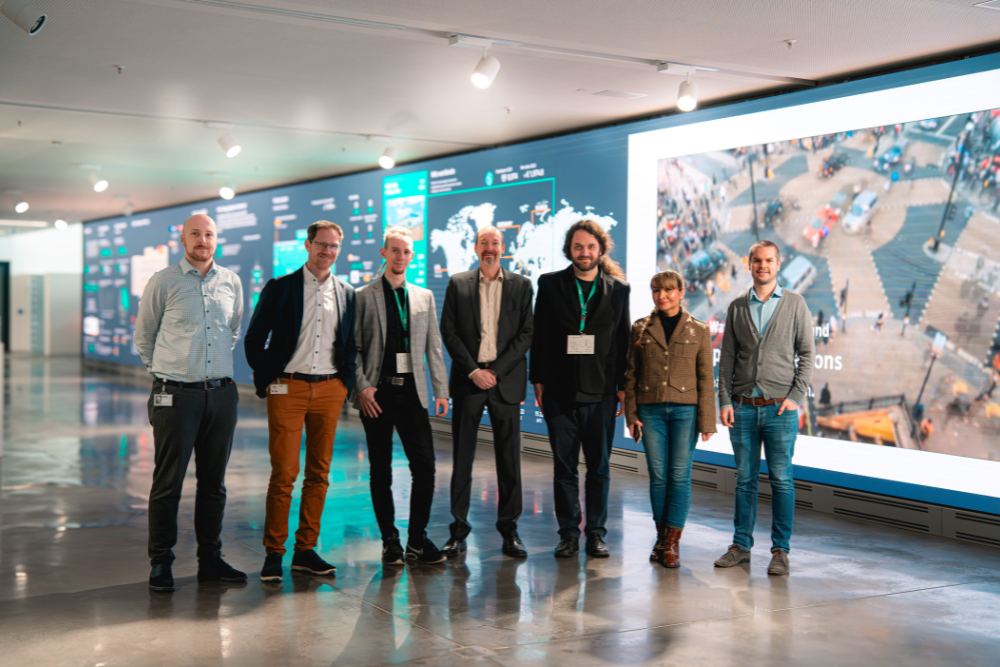
The Lamarr Institute for Machine Learning and Artificial Intelligence and the multinational technology group Wilo, based in Dortmund, have successfully combined scientific expertise with industrial practice in a unique collaboration. The collaboration, initiated by Lamarr founding director Prof. Dr. Katharina Morik and Georg Weber, member of the Executive Board and CTO of the Wilo Group, has shown how AI-based technologies can sustainably advance industrial manufacturing.
An Agile Approach for Innovative Solutions
In contrast to many conventional scientific-industrial collaborations, the focus of this partnership was not initially on fixed projects. Instead, interviews with various departments at Wilo were used to identify, prioritize and specifically work on potential use cases. This approach was even documented in a scientific paper: Prioritization of Identified Data Science Use Cases in Industrial Manufacturing via C-EDIF Scoring. “We brought together economic and scientific perspectives,” explains Andreas Pauly from the Lamarr Institute. “Thanks to agile project management, we were able to make rapid progress and work together to achieve results.”
Success Through Close Cooperation
A key success factor was the close coordination between the teams at the Lamarr Institute and the Wilo departments. From responding to customer inquiries to predictive maintenance – the approaches developed were always based on a deep understanding of business processes and innovative methods from basic research. Special emphasis was placed on hybrid methods for integrating expert knowledge and resource-efficient models in order to develop cost-effective solutions. The team says
“The combination of domain-specific knowledge and the latest research findings has enabled us to create promising applications”.
Challenges as Opportunities
As with any ambitious collaboration, there were also challenges: Dealing with non-curated data sets required an intensive exchange with domain experts in order to interpret the data correctly. At the same time, this proximity to practice proved to be a valuable experience for everyone involved. “Scientists learn better what is relevant for the application,” explains Lamarr scientist Raphael Fischer. “And companies receive initial implementations of AI applications that take their specific expertise into account.”
Long-term Goals and Potential
The overarching goal of this partnership was to sustainably promote the AI landscape within companies such as Wilo. While some results are still within the scope of active product developments – including patents and scientific publications – both the company and its customers will benefit from optimized processes and better service offerings in the long term.
The findings from this collaboration could also serve as a model for future partnerships between science and industry: They impressively demonstrate that both sides can only gain – whether through practical research or innovative technological applications.
Conclusion of the Successful Collaboration
After an intensive phase of joint work, the partnership between the Lamarr Institute and Wilo has now come to an end for the time being. Both sides draw a positive balance: “This cooperation has not only produced important findings, but has also shown how fruitful the exchange between science and industry can be,” emphasizes Fischer. Although the project has come to an end, the potential for renewed cooperation remains: The possibility of expanding or transferring it to new areas is already being discussed.
Looking Into the Future
With a view to future developments, the possibilities remain diverse: from generative AI to classic regression models, numerous technologies are conceivable. If there are further joint projects in the future, these could build on the success of the past.
“This partnership impressively demonstrates the potential of interdisciplinary projects,” concludes the Lamarr Institute team. “Through the mutual exchange, we were not only able to create economic added value, but also significantly advance our own research.”
For further information please contact:
Lamarr Institute for Machine Learning and Artificial Intelligence
Andreas Pauly
c/o TU Dortmund University
Email: an***********@*********nd.de
WILO SE
David Graurock
Head of AI Competence Center
Email: Da************@**lo.com